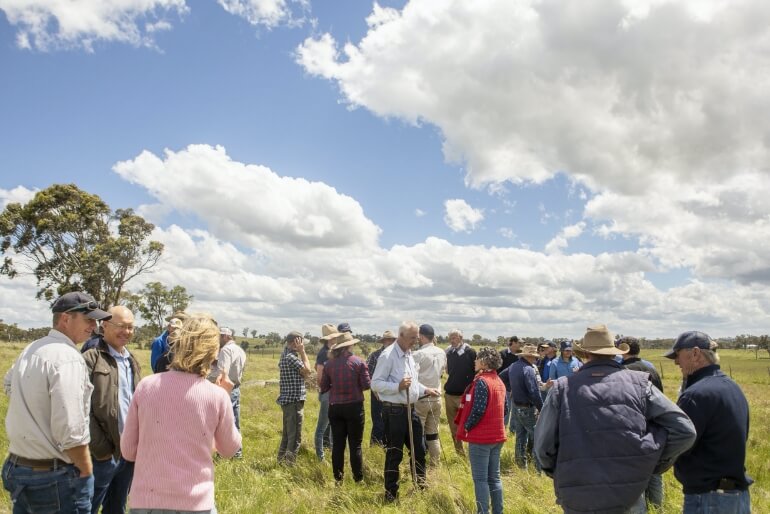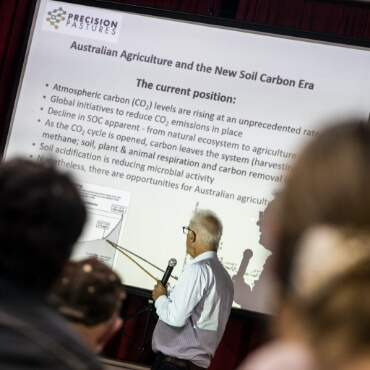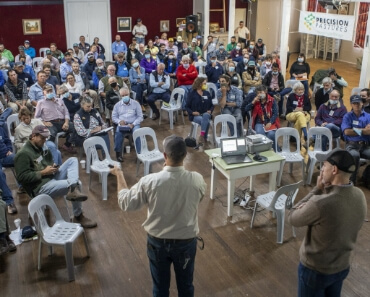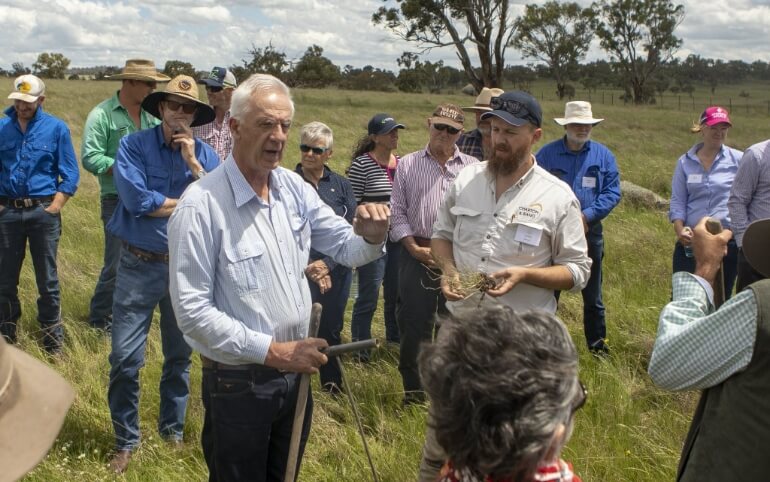Soil Carbon Field Day Musters a Crowd as COP26 and Net Zero Ignites Carbon Farming Interest

More than 100 farmers, agri-corporates, and agribusiness service providers keen to expand their knowledge on soil carbon farming attended Precision Pastures’ Soil Carbon Field Day held on 12 November in Deepwater, northern New South Wales.
The field day featured presentations from experts in the carbon farming industry, followed by a field walk and live soil sampling demonstration which delved into the practice of carbon sequestration revealing a farm’s potential to deliver a soil carbon project.
The event was specifically looking at soil carbon farming, which under the Clean Energy Regulator’s method, requires producers to conduct baseline soil testing, and then complete a change of land management that includes one or more ‘eligible activities’ including the application of lime to optimise pH levels, the application of fertiliser to rectify nutrient deficiencies, rejuvenating pastures by re-seeding, using a broad mix pasture cropping, or changing stocking density, movement and timing.
Farmers travelled from all over the state, including some from Queensland and the Australian Capital Territory, and were highly engaged in the discussion, with the presenters fielding many questions on how to integrate soil carbon farming into their businesses.
Presentations were given by the below speakers:
- ‘The Australian carbon industry overview’ – by Toby Grogan, natural capital manager of Impact Ag Partners, Armidale
- ‘The potential production and income benefits of soil carbon farming’ – by Milton Curkpatrick, managing director and founder of Precision Pastures, Armidale
- ‘The role of organic matter and soil biology in carbon sequestration’ – by John Barton, Charton & Bang CarbonRich Compost Products, Pemulwuy
- ‘How to start your soil carbon project’ – by Hamish Webb, grazier, Uralla
- Field walk and soil carbon sampling demonstration co-led by Pat Herde, grazier, ‘Eastleigh’, Deepwater and Drew Walsh, agronomist at Precision Pastures, Armidale
Managing director and founder of Precision Pastures Milton Curkpatrick said the day was a huge success and reflected obvious interest among the farming community in soil carbon opportunities.
“Farmers are assessing their options to integrate carbon farming into their enterprises,” he said.
“We offer a low-cost initial assessment – a Carbon Starter Report – which highlights a farm’s ability to sustainably and profitably sequester carbon which is something many on the day were signing up for on the day.”
The overview of the carbon market and general regulatory landscape was also very helpful to those in the room who were keen to wrap their heads around the methodology and fee structures around carbon projects, Milton said.
“We believe the alignment of production objectives with regulated ‘eligible activities’ under the Clean Energy Regulator’s methodology means soil carbon farming can be a significant win-win for farmers as they seek to boost their pasture performance by sequestering carbon, and then potentially obtain carbon credits in time.”




